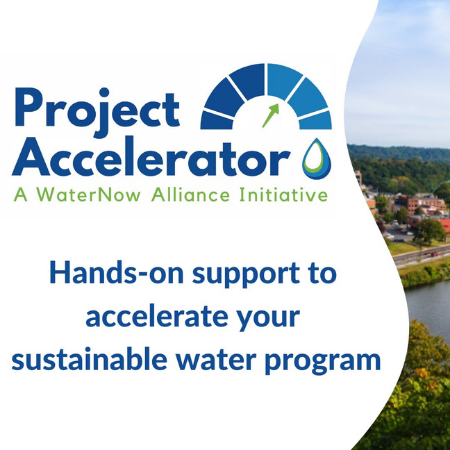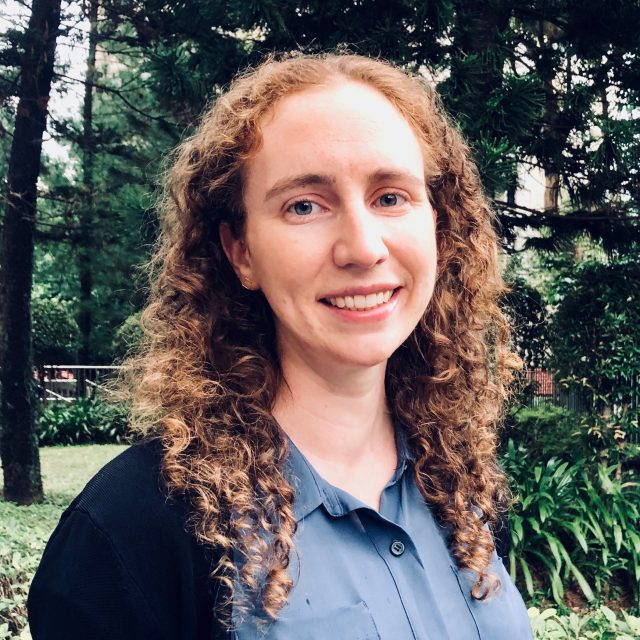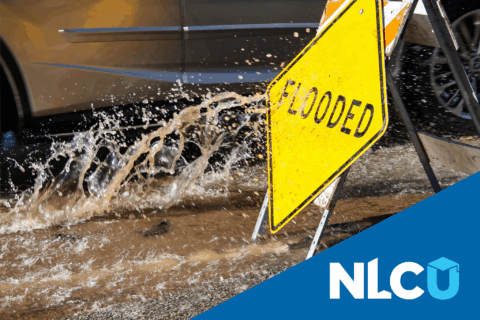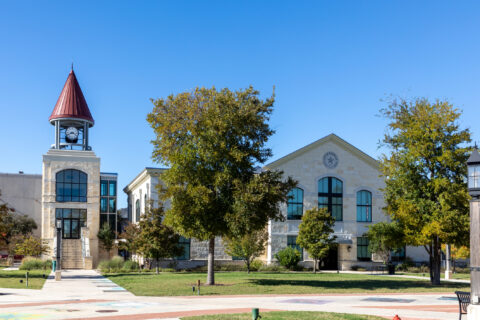Cities and towns are increasingly looking for new solutions to confront a daunting array of water management challenges. As climate change makes weather more extreme and aging infrastructure needs to be replaced, many communities are encouraging residents to swap out turf grass for native landscaping, while others are designing parks to absorb rainwater and prevent floods. Cities are confronting aging water infrastructure, developing innovative programs to remove lead service lines and protect public health.
This is a new and growing model of “distributed” water infrastructure to address water management throughout an entire community, supplementing and extending the life of conventional water infrastructure. These strategies – which include water conservation, reuse, green infrastructure, and other consumer-focused technology – help secure water supply, protect the local environment, and keep water costs affordable and advance water equity.
Now, NLC partners at the WaterNow Alliance are accepting applications for their Project Accelerator to help these kinds of innovative water projects and initiatives get off the ground.

WaterNow Alliance is a forum for local water leaders who want to champion sustainable, affordable and climate resilient water strategies, and this program offers 250 hours of pro-bono support to cities, towns, and other public entities with responsibility for drinking water, wastewater, and stormwater. It aims to provide a shot of adrenaline into efforts to develop affordable, sustainable, and equitable water solutions.
The exact form of support varies along with communities’ needs, priorities, and innovative approaches to solving water management challenges. In Cleveland, Ohio, the Accelerator is supporting the Water Champions program, a partnership between local non-profit CHN Housing Partners, the Cleveland Division of Water, and the Northeast Ohio Regional Sewer District. Through this program, two Water Champions will conduct grassroots engagement to better understand communities’ perspectives and priorities around water and sewer issues, and to help connect residents with affordability programs.
In New Orleans, an Accelerator project developed a detailed roadmap towards the creation of a green streets ordinance. In Summit County, Colorado, the Accelerator is currently providing additional capacity and expertise to guide the development of a regional outdoor water efficiency program.
Support provided by Project Accelerator can include program design and management, policy and legal analysis, stakeholder outreach, communications strategy, data analysis, and sustainability expertise, depending on the goals of the community. While there is an endless list of potential projects, they share common goals of advancing sustainable solutions, advancing social equity, and fostering climate resilience.
Applications for the program will be accepted through May 28. Click here to learn more or apply.









